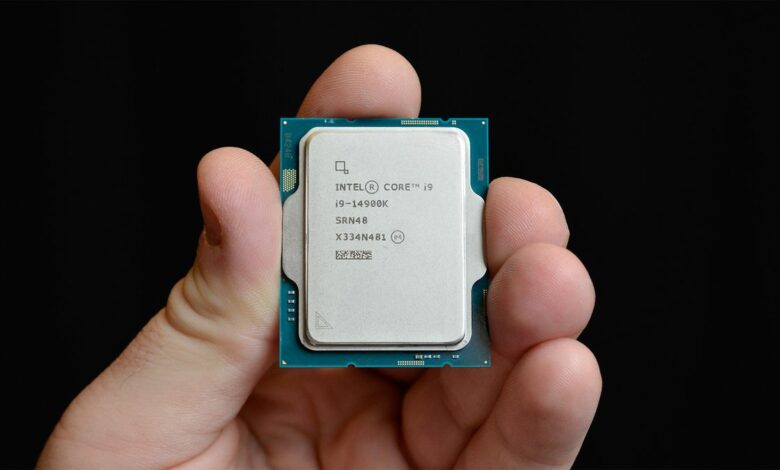Intel’s Crashing Core i9 CPU Issues Appear Worse Than We Thought – Team Blue Really Needs to Take Action Now to Fix This Mess

Intel’s problems with unstable 13th and 14th generation high-end CPUs appear to run deeper than we thought. A new YouTube video that delves into the issues may not alleviate the concerns of buyers of Raptor Lake Core i9 processors (and the subsequent refresh).
Level1Techs is the YouTuber in question, who has been exploring various avenues in an attempt to make more sense of the crashing issues with these Intel processors that are plaguing some PC gamers and making their lives miserable – in some cases more than others.
Data from game developers’ crash logs – from two different games – clearly shows that many crashes occur with the aforementioned more recent Intel Core i9 chips (13900K and 14900K).
In fact, for one particular type of error (decompression, a common action in games), there were a total of 1,584 errors that occurred in the databases Level1Techs crawled, and an alarming 1,431 of them happened with a 13900K or 14900K. Yes, that’s 90% of those decompression errors affecting just two specific CPUs.
As for other processors, the third most common was an old Intel Core i7 9750H (Coffee Lake laptop CPU) – which had 11 instances in total. All AMD processors in total had only 4 instances of decompression errors in these game databases.
Lest you think that AMD chips might be underrepresented here, and that this figure is therefore very low, that’s not the case: 30% of the CPUs in the database come from Team Red.
These findings alone are concerning, but as always, one set of data hardly tells the whole picture. What we also don’t know here is that while it may seem like there’s something seriously wrong with these Core i9 CPUs, is the chip really to blame? Or, as Intel has previously indicated, is the motherboards and their settings to blame? (Intel has some guidance on this).
The YouTuber brings up another point here, though: namely, that data centers are seeing these issues with Core i9s. Even 13900K and 14900K processors in W680 motherboards – which are built for stability, so you can’t blame issues on low-quality components – are experiencing these crashes. Also, these boards aren’t built or used for overclocking, so these issues can’t be blamed on overzealous enthusiasts pushing their Intel CPUs too hard.
Level1Techs notes that one data center vendor is charging significantly more to support the Intel CPU-powered systems it deploys compared to AMD, because it has seen an “unusually high” level of issues that have had to be addressed by taking measures such as disabling efficiency cores – or even replacing chips entirely. So support for these Intel Core i9s now comes at a hefty premium.
The data center provider notes that the 12900K chips weren’t as problematic as these, and that “something’s not right with the 13900K and 14900K,” in short. Even after replacing the CPUs, the issues don’t appear to be completely resolved, the company the YouTuber spoke to noted.
Game servers running on these Core i9 chips are also crashing more often, causing developers to fear losing players who become frustrated and blame the game or developer, when (ostensibly) the hardware is the culprit.

Analysis: The threat of serious reputational damage
As Level1Techs points out, the confusion surrounding the causality here makes for a tricky mess. Intel still isn’t clear on the root cause, though the company has issued several pieces of advice as previously noted – and also released a microcode update to tune Enhanced Thermal Velocity Boost on these processors (apparently not the root problem – but at least part of the problem here).
Yes, we understand that this is clearly a complex issue, but Intel really needs to take more definitive action to pin it down. With data like this from Level1Techs coming to light, you can bet we’ll see further analysis along these lines soon, so now is the time for Intel to take action – before any real reputational damage occurs.
One anonymous motherboard manufacturer has already expressed concern that this whole affair will scare people away from Intel’s next-generation Arrow Lake CPUs. And as public perception of this failure seems to be deteriorating, those concerns are only growing.
Okay, we don’t want to jump to conclusions about what’s going on with these Core i9s, but there’s clearly something wrong and eager buyers of these CPUs will be worried about their expensive purchase at this point. Because another important aspect that the YouTuber’s data points out is that these bugs and crashes seem to get worse over time – a terrifying prospect if that’s how it really plays out.
Confidence in Intel will quickly erode if this isn’t addressed more thoroughly than Team Blue has thus far. That will put Arrow Lake in a tough position at launch, as the company tries to secure its spot in our best CPU rankings against a seemingly strong next-gen Ryzen rival.
Intel should at least make some solid assurances that if Core i9 buyers have a problematic CPU, it will be replaced, no questions asked – but this is something else we’re not seeing. And again, reluctance on that front only adds fuel to the fire that this is a bigger problem than we all initially thought. We’ve reached out to Intel for comment on the claims made in the video and will update this story if we hear back.




